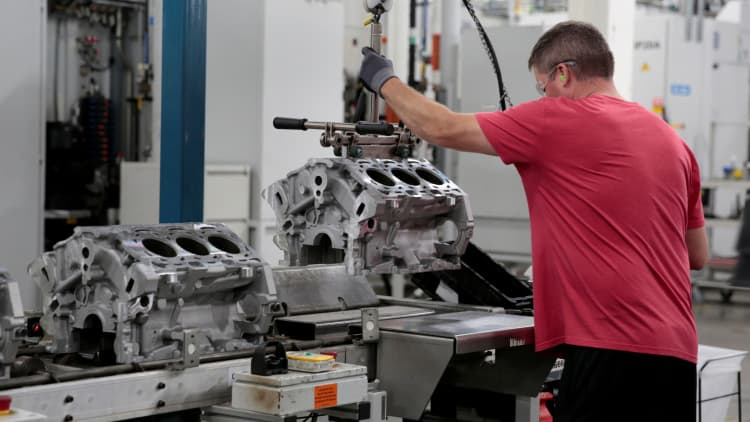DETROIT – The Biden administration's elimination of tax credits for imported electric vehicles deals a massive blow to Hyundai Motor's business, an executive for the automaker said Wednesday.
Jose Munoz, global president and chief operating officer, declined to disclose a specific financial impact associated with the requirements of the Inflation Reduction Act, but described it as a huge blow to the automaker's bottom line. Hyundai and others are lobbying for some of those requirements to be reversed.
"It will be very, very astronomical if nothing happens, if nothing changes. The impact is huge," Munoz said Wednesday during a Reuters automotive conference. "That's why we're taking actions through all the channels."

Hyundai and other nondomestic automakers have been vocal opponents of the new electric vehicle tax credit regulations under the Inflation Reduction Act. The law, passed by Congress in August, immediately eliminated a tax credit of up to $7,500 for plug-in hybrid and electric vehicles that are imported and sold in the U.S.
U.S. Trade Representative Katherine Tai on Wednesday spoke with Korea's Minister for Trade Ahn Dukgeun. They emphasized their common interest in addressing challenges related to supply chains and strengthening the two countries' relationship. They also pledged to continue discussing the Inflation Reduction Act of 2022 and agreed to remain in contact and continue working together as the Treasury Department develops its guidance to implement the legislation.
Hyundai, including Kia, has quickly become the second best-selling automaker of EVs in the U.S., representing 8.1% of the market through the third quarter, according to Motor Intelligence data. It trails only well-established leader Tesla, which continues to command roughly 67% of new EVs sold.
Critics of the Inflation Reduction Act have argued for a phase-in period before the tax credits would be fully eliminated, as well as additional time to meet stricter sourcing requirements for the raw materials used in batteries and EV manufacturing.
Automakers have relied on the credits to assist in lowering the prices on the vehicles for consumers, as costs of lithium and cobalt needed for the batteries have soared.
The federal government has used EV tax credits as a tool to promote the adoption of electric vehicles and lower the U.S. automotive industry's reliance on fossil fuels. Electric vehicles are currently far pricier than their gasoline counterparts due to the expensive batteries needed to power the vehicles.
Supporters of the new rules say they will wean the auto industry off its reliance on foreign countries, specifically China, and encourage domestic production of electric vehicles and batteries – a goal of the Biden administration.
Munoz believes Hyundai should be given an exemption from the elimination because of its commitment to the U.S. market, which includes $5.5 billion investments in Georgia for electric vehicles and batteries. The operations are expected to come online in 2025.
Hyundai is based in South Korea, where the automaker produces all of its all-electric vehicles. Nearly half of the automaker's Hyundai-branded vehicles sold in the U.S. last year were produced domestically, according to the company.
"We would like to look for a solution, before the end of the year," that would restore the tax credits for Hyundai customers, he said.
The longtime auto executive also alluded to the idea that the U.S. could be violating, in some form, its free trade agreement with South Korea as a result of the law.
Bloomberg News on Tuesday reported Hyundai and the South Korean government are ratcheting up lobbying to loosen restrictions on the EV tax credits.


